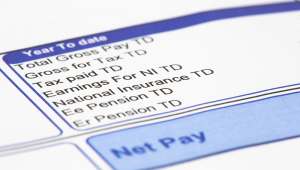
With the daily commute a fading memory, Local Government Pension Scheme fund officers and their teams have settled into remote working. But what are the immediate investment and funding challenges facing them as a result of the Covid-19 pandemic?
Given the resulting economic turmoil it will be important to ensure that funds hold sufficient cash to meet benefits as they fall due. The key concern is to manage cashflow. Funds have been looking closely at sources of income (primarily, contributions and income/redemption distributions from assets) and outgoings (mainly benefit payments and investment manager capital calls), and running stress tests on the need for short-term cash injections.
It is also useful to assess liquidity, as it helps to know how quickly extra cash can be raised from assets if required to meet outgoings. This assessment should allow for the direct and indirect costs of raising cash and should include liquidity requirements within funds managed by portfolio managers or pools. Funds holding investments with collateralised positions should also review collateral requirements and understand the potential order of magnitude of a collateral call, the driver behind the call and the likelihood of that occurring.
Beyond cash needs, it is important for funds to consider other aspects such as strategic requirements. Has the balance of risks within the fund’s asset allocations shifted? Are strategies and plans still aligned to the fund’s long-term objectives and still fit for purpose? This is particularly important in the context of rebalancing decisions and the timing of funding allocations agreed as part of recent strategy reviews.
It is also important to consider planned and in-progress investment transition activity in light of market conditions. Are agreed actions still relevant, and, if so, should they be paused, accelerated or decelerated? Funds should understand how their portfolios have reacted to recent events and how this has affected the outlook. This includes the impact on key features of a fund’s assets, such as credit quality, income and yield expectations, diversification and counterparty risk.
There could even be a need to review existing mandate guidelines. Many funds have agreed to fund new illiquid assets and have in place interim investment options or overweight allocations to existing asset classes. They may wish to review the risk characteristics of these options versus target assets.
Funding levels have fallen by up to 10% for most funds since the 2019 valuation, so contribution rate levels will be high on LGPS fund managers’ agendas. While funds have generally not changed rates for long-term employers (eg, councils), they may be subject to review for short-term employers, such as contractors close to exit.
When it comes to considering employer covenants, lockdown measures have been a shock to the finances of many businesses, with impact varying by sector and employer. Further education bodies and charities are of particular concern in the LGPS. Funds are speaking to affected employers to better understand their financial resilience and considering how to manage increased insolvency risks. Some employers have asked for contribution deferrals and are temporarily ceasing contributions to maintain cashflow. Funds are setting up policies and principles around handling these requests and should consider regulatory restrictions and guidance from the Pensions Regulator. Higher death rates from the unfolding tragedy will, sadly, inevitably affect funds.
Higher mortality among pensioners will lead to lower liabilities, with the impact greater for ‘mature’ employers with older average ages. Data is being gathered, but it is too early to draw firm conclusions about the impact on liabilities.




















